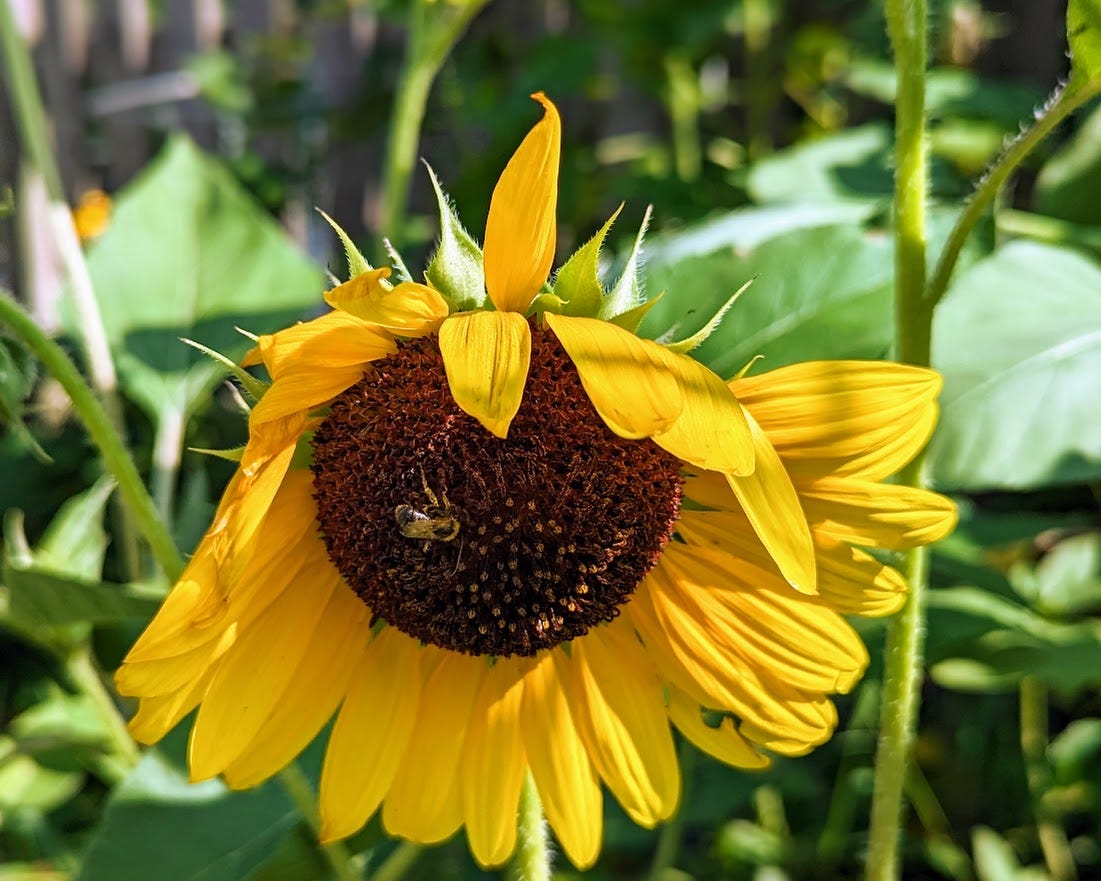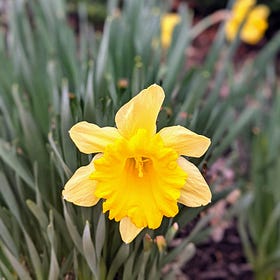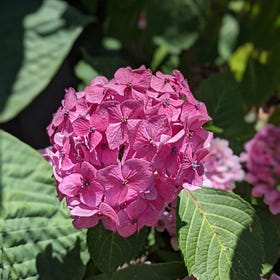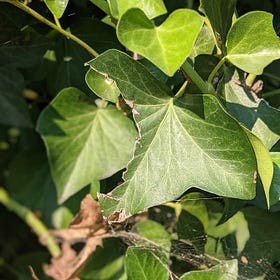the recovery is as important as the work
setting intentions for August, or how to write through the swamp of late summer
Welcome to Write More! This is the monthly intentions email, which goes out the last Sunday before a new month starts. Last month, we talked about the genius of
’s Real Self-Care and practicing self-compassion in our writing lives. This month, we’re thinking about intensity and rest.If you’d like to join us, subscribe here.
It’s August, man. All I really want to do is lay flat on the floor underneath a ceiling fan, but I’m trying instead to eke out a bit more writing before my kids come home from sleepaway camp at the end of this week and before I head back to teaching at the end of the month.
I’ve been thinking a lot in the past couple of weeks about intensity. Now that I’m officially on deadline for this book, I keep feeling like I want to just crank it all out at once. I have this little fantasy that if I could hide myself away in a cabin for a week or a month, I could just produce the whole book in a flood of typing. But even if I could do that (I think my family would miss me?), that’s not the kind of writer I want to be, and it’s not the kind of book I want to write. I’m still thinking about what it means to be ambitious about the process, as Rainesford Stauffer put it in her interview with
, and for me that looks like lots of really focused writing time (at least until my children return from camp and need snacks every three minutes), but also lots of no-phone walks, good lunches not in front of a screen, talking to friends, and, mostly, letting myself breathe and think and explore my way into the rest of the book.A lot of this is about decoupling from productivity culture and trusting that the work is happening, even if the word count isn’t increasing at a frantic rate.
(And I’d love to know: how do you think about intensity in your creative life? What does it mean to you to be ambitious about the process?)

August intentions
A little explainer, since we’ve got tons of new folks (welcome!): on the last Sunday of each month, I send out an intentions email like this with some questions designed to help you reflect on the previous month and set some intentions for your creative practice in the coming month. I’ve found that this kind of reflection and intention-setting can be especially helpful in a busy season, when your time is fractured, or when you’re working on a big project and it’s hard to see the progress you’re making. (You can see previous intentions posts here.)
As you set intentions for your writing life in August, one question, with a special eye toward making space for rest and taking the intensity down a notch:
Where can you soften? Where can you find more ease? Where can you have fun?
(Okay, yes, that’s technically three questions, but I’m counting them as variations on the same idea. Also, can you tell I went to, like, one yoga class and was immediately re-smitten with the language?)
Here’s what I mean: if you’re finding writing stressful now, or if you’re finding it hard to sit down to write, how can you make that easier for yourself?
Finding ease might be about process: if you don’t have uninterrupted hours with your laptop, can you jot a couple ideas in a notebook between activities or record a voice memo in your phone when you have an idea or an image? it might be about content or genre: if an essay isn’t coming together, what would the poem version look like? if you’re totally lost in a long draft, could you try printing it out and taping it to a wall, or outlining it on index cards? it might be (I’m still stuck on this; it’s still important for me) about practicing self-compassion in your creative life: can you be kinder in how you talk to yourself about your work?
And a bonus question, inspired by
’s recent mantra issue of his newsletter Subtle Maneuvers:What are you good at?
In that newsletter, Currey cites a New Yorker profile of Rachel Cusk, in which Cusk kind of casually asserts “I’m very strong.” Currey’s talking about mantras, of course (and the comments are full of some good ones!), but this led me to think about how powerful it can be to understand our own skills and talents, to assert those without apology, and to pursue work that makes the most them.
What are you good at? Do you write killer dialogue, do you have a talent for characterization, or a deft hand with enjambment? Make yourself a list. Post it somewhere you’ll see it as you work. (If it’s hard for you to say nice things about yourself, think about how someone who knows you and your work well would describe you.)
icymi—what we’ve been up to here & elsewhere on the internet
for Jane Friedman, I wrote about how this newsletter (this very one!) helped me find an agent and get a book deal (and so many of you found us through that piece! I’m so glad you’re here)
I wrote about mothering and writing for
’s great project Mothers Who Makemore thoughts on rest, from the Write More archive
on asking for help, with tips on when to share and why
show your work
on the restorative power of deliberate rest
serious rest
on asking for time, feedback, and encouragement, with inspiration from Lauren Groff’s no-nonsense parenting and writing contract
Write More, Be Less Careful is a newsletter about why writing is hard & how to do it anyway. I’d love to hear from you. Reply to this email, comment below, or find me on instagram (@nancy.o.reddy).
If you’ve enjoyed this newsletter, I’d love it if you would share it or send it to a friend.








English isn't my native language, so, please, forgive me if something is not clear or seams strange. I just started writing, after my retiring, and, yes, it is so hard to do! I'm still trying to find the ways to make it easier. It seems that my mind is much more creative at creating obstacles and procrastinating than it is at creating stories. Anyway, I keep trying. Thanks for your thougs and tips.
Like so many others, I find my creativity comes in spurts. Over the span of less than 20 months, I've had three books published by traditional publishers, had one of them drop dead (heart attack, dying intestate), lost many hours getting my rights back, uploaded a four-novel series (including the two the deceased publisher had released), and then self-published a novella and a pair of plays.
I am now in a "consolidation" mode. I have sketched another novel completely, but written almost none of it. I am also trying to learn a little about self-publishing (e.g., the issue of Kindle Select vs. publishing "wide"), and familiarizing myself with various platforms (including substack).
On another front, I am a classical musician (composer), but I haven't composed a note in over a year. I am again dealing with some musical "realities" of a different sort.
Bottom line: even at "rest," the creative juices continue to stir. When the time is right, I shall go back to the "creative" side. At present, I must attend to other, more pressing matters. Good luck to all of us!